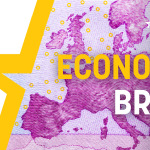
The European Council and Parliament reached a provisional agreement on Thursday (1 February) on legislation aimed at ensuring the smooth functioning of the single market during crises.
The deal was hailed by policymakers and experts as a major step forward in the bloc’s attempts to prevent a repeat of the border closures and other disruptions which threatened the EU’s cohesion during the COVID-19 pandemic.
It follows the European Commission’s proposal in September 2022 to create a Single Market Emergency Instrument (SMEI) to guarantee the supply of critical goods and services during economic crises, natural disasters, and pandemics.
The new agreement, renamed the Internal Market Emergency and Resilience Act (IMERA), waters down some of the Commission’s original provisions – including its ability to force companies to prioritise the production of certain products – but retains its “basic ideas”, according to Klaas Hendrik Eller, an assistant professor at the Amsterdam Center for Transformative Private Law.
“The message is that [the EU] will never again allow a crisis like Covid-19 to become not only a crisis for the internal market, but also ultimately a crisis for the European institutions and for the relations between member states,” Eller told Euractiv.
Eller’s remarks were echoed by Belgian Economy Minister Pierre-Yves Dermagne, whose country currently holds the rotating Council presidency.
“The new legislative instrument [is] aimed precisely at guaranteeing an internal market that ensures the stability of supply chains for critical goods and services, secures welfare and prepares us to face the challenges ahead,” Dermagne said in a statement.
Key changes
Among other measures, the deal would see the creation of a special advisory group consisting of representatives of the Commission and member states. The so-called ‘internal market emergency and resilience board’ would be tasked with assessing potential threats to the EU’s single market and suggesting appropriate policy responses.
The agreement would also allow the EU to make “priority-rated requests” to companies to prioritise the production of specific products – although it differs from the Commission’s original proposal insofar as it allows companies to reject such requests.
The deal further weakens the Commission’s original scheme by allowing businesses to reject data requests by the EU as long as they provide an appropriate explanation, while the Commission’s proposed restrictions on the right to strike – which had initially enraged trade unions – have been rescinded.
‘A comprehensive and significant instrument’
Eller, the University of Amsterdam professor, noted that despite these changes the “regulatory vision” of the agreement remains “pretty much the same” as the Commission’s initial proposal.
Furthermore, he suggested that the renaming of the proposed regulation (from the Single Market Emergency Instrument to the Internal Market Emergency and Resilience Act) is a signal of the seriousness of the EU’s legislative intent.
“Usually, when the Commission calls something an act, and not a directive or a regulation, that’s a signal that they are taking that specific, legislative text very seriously and want it to have a certain visibility,” he said.
“I also think that the inclusion of the term ‘resilience’, which has been so popular in recent legislative debates and recent policy debates, clearly signals that this is meant to be a really comprehensive and significant instrument in the EU,” he added.
However, Eller noted certain “lacunae” in the proposal, including the definition of what exactly counts as an emergency as well as the “elephant in the room” of how to regulate supply chains that are inherently “global in nature”.
‘You need to anticipate emergencies’
Rebecca Christie, a senior fellow at the think tank Bruegel, was similarly optimistic about the scope of the agreement although it had been “scaled back from when it was introduced”.
She also noted that the Commission appears to have realised that not having a defined protocol during crises is “not a winning plan”.
“We’re finding that the in post-pandemic and post-Russian invasion of Ukraine era you need to anticipate that emergencies are going to happen on a more regular basis, and you need to have a way to make sure that one country protecting itself doesn’t immediately hurt all of its allies,” she said.
The deal will need to be formally approved by both the European Parliament and the Council before it becomes EU law.
[Edited by Nathalie Weatherald]










